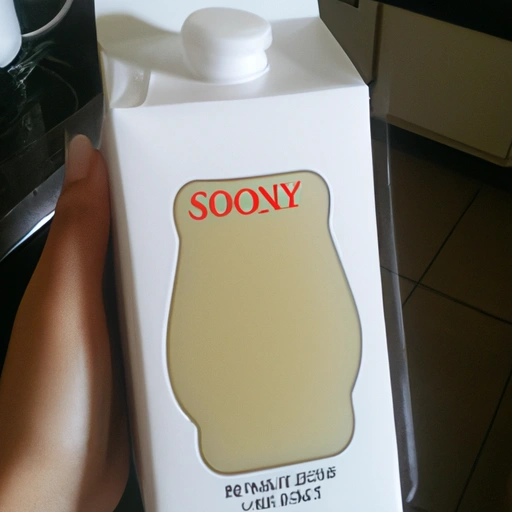Soymilk
Description

Soymilk, a plant-based non-dairy beverage, is a popular alternative to cow's milk. Made from soybeans, it is a versatile ingredient that has been embraced by the culinary world due to its creamy texture and subtle nutty flavor. Soymilk is not only a cornerstone in vegan and lactose-free diets but also a common choice for those seeking a healthier lifestyle. It's available in various forms including sweetened, unsweetened, flavored, and fortified with vitamins and minerals.
Common uses
Soymilk is commonly used as a beverage, a dairy substitute in coffee, and as a base for smoothies. It is also employed in baking, cooking, and the creation of dairy-free desserts.
Nutritional value
Calories
One cup (240 mL/8 fl oz) of unsweetened soymilk contains approximately 80-100 calories.
Protein
Soymilk is an excellent source of protein, with about 7-9 grams per cup (240 mL/8 fl oz).
Fat
There are about 4 grams of fat in one cup of soymilk, most of which are heart-healthy monounsaturated and polyunsaturated fats.
Carbohydrates
Unsweetened soymilk contains about 4 grams of carbohydrates per cup (240 mL/8 fl oz).
Vitamins
Soymilk is often fortified with vitamins such as vitamin D and vitamin B12. Some brands also contain vitamin A and vitamin E.
Minerals
It is a good source of calcium (when fortified), magnesium, phosphorus, potassium, and selenium.
Health benefits
Soymilk is celebrated for its potential to lower cholesterol levels, improve heart health, and provide a complete protein source for plant-based diets. It also contains isoflavones, which are believed to have antioxidant properties.
Potential risks
Some individuals may have soy allergies, which could cause reactions to soymilk. Additionally, there is debate about the effects of phytoestrogens found in soy on hormone levels.
Common recipes
Soymilk can be used in a wide range of recipes, including creamy soups, sauces, baked goods, pancakes, and custards.
Cooking methods
It can be steamed, frothed for coffee beverages, or simply used as a direct substitute for dairy milk in most cooking applications.
Pairing with other ingredients
Soymilk pairs well with cereal grains, coffee, cocoa, and a variety of sweet and savory flavors, adapting well to both Eastern and Western cuisines.
Summary
Soymilk is a nutritious dairy alternative with a rich history and a broad range of uses in the kitchen. It's enjoyed by people across the globe and can be adapted to suit a variety of recipes, whether you're looking to enhance your diet with more plant-based options or simply enjoy its distinct flavor profile.